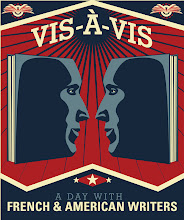
STEVE ERICKSON is the author of eight novels: Days Between Stations, Rubicon Beach, Tours of the Black Clock, Arc d'X, Amnesiascope, The Sea Came in at Midnight, Our Ecstatic Days and Zeroville. He also has written two books about American politics and popular culture, Leap Year and American Nomad. Numerous editions have been published in English, Spanish, French, German, Italian, Dutch, Polish, Greek, Russian and Japanese. Over the years he has written for Esquire, Rolling Stone, Bookforum, Frieze, Conjunctions, Salon, the L.A. Weekly, the New York Times Magazine and other publications and journals, and his work has been widely anthologized. Currently he's the film critic for Los Angeles magazine and editor of the literary journal Black Clock, which is published by the California Institute of the Arts where he teaches in the MFA Writing Program. He has received a grant from the National Endowment for the Arts and in 2007 was awarded a fellowship by the John Simon Guggenheim Foundation. In 2010 he was nominated for the National Magazine Award for his film criticism and was the recipient of one of seven awards in literature given by the American Academy of Arts and Letters. He lives with his wife, artist and director Lori Precious, and their family.
I believe that cinema was here from the beginning of the world.
Josef von Sternberg
Zeroville
On the same August day in 1969 that a crazed hippie "family" led by Charles Manson commits five savage murders in  the canyons above Los Angeles, a young ex-communicated seminarian arrives with the images of Elizabeth Taylor and Montgomery Clift — "the two most beautiful people in the history of the movies" — tattooed on his head. At once childlike and violent, Vikar is not a cinéaste but "cineautistic," sleeping at night in the Roosevelt Hotel where he's haunted by the ghost of D. W. Griffith. Vikar has stepped into the vortex of a culture in upheaval: strange drugs that frighten him, a strange sexuality that consumes him, a strange music he doesn't understand. Over the course of the Seventies and into the Eighties, he pursues his obsession with film from one screening to the next and through a series of cinema-besotted conversations and encounters with starlets, burglars, guerrillas, escorts, teenage punks and veteran film editors, only to discover a secret whose clues lie in every film ever made, and only to find that we don't dream the Movies but rather they dream us.
the canyons above Los Angeles, a young ex-communicated seminarian arrives with the images of Elizabeth Taylor and Montgomery Clift — "the two most beautiful people in the history of the movies" — tattooed on his head. At once childlike and violent, Vikar is not a cinéaste but "cineautistic," sleeping at night in the Roosevelt Hotel where he's haunted by the ghost of D. W. Griffith. Vikar has stepped into the vortex of a culture in upheaval: strange drugs that frighten him, a strange sexuality that consumes him, a strange music he doesn't understand. Over the course of the Seventies and into the Eighties, he pursues his obsession with film from one screening to the next and through a series of cinema-besotted conversations and encounters with starlets, burglars, guerrillas, escorts, teenage punks and veteran film editors, only to discover a secret whose clues lie in every film ever made, and only to find that we don't dream the Movies but rather they dream us.
"Funny, disturbing, daring... dreamlike and sometimes nightmarish. Erickson's best."
New York Times Book Review
"One of a kind... a funny, unnervingly surreal page turner... sets off fireworks in any movie lover's head."
Newsweek
"Zeroville is funny, sad and darkly beautiful. Over his entire career Erickson has challenged readers with a fiercely intelligent and surprisingly sensual brand of American surrealism. "
Washington Post Book World
"Beautifully lucid... manages to wipe clean the presumptions typically guiding the Hollywood Novel."
Los Angeles Times Book Review (front page)
"God I love this book... a feral and entertaining ride with cultural references, quirky koans and a few surreal pit stops"
Philadelphia Inquirer
"Magnificent. Zeroville transports us to fully recognizable places we didn't know existed."
The Believer
"Steve Erickson adapts nearly the oldest story in the book, threads it through the projector through which all film history spins, and... throws light and shadow onto the backs of our eyelids in this love letter to celluloid. If you're a film fan, run, don't walk: Zeroville is your novel of the year."
Bookforum



Hi, well be sensible, well-all described
ReplyDelete